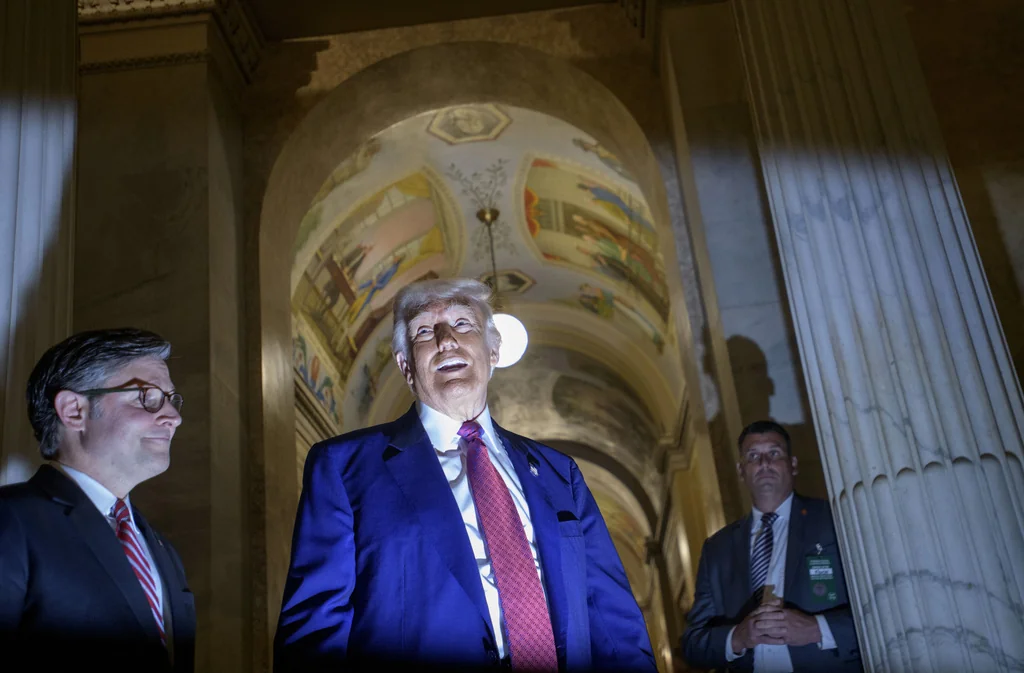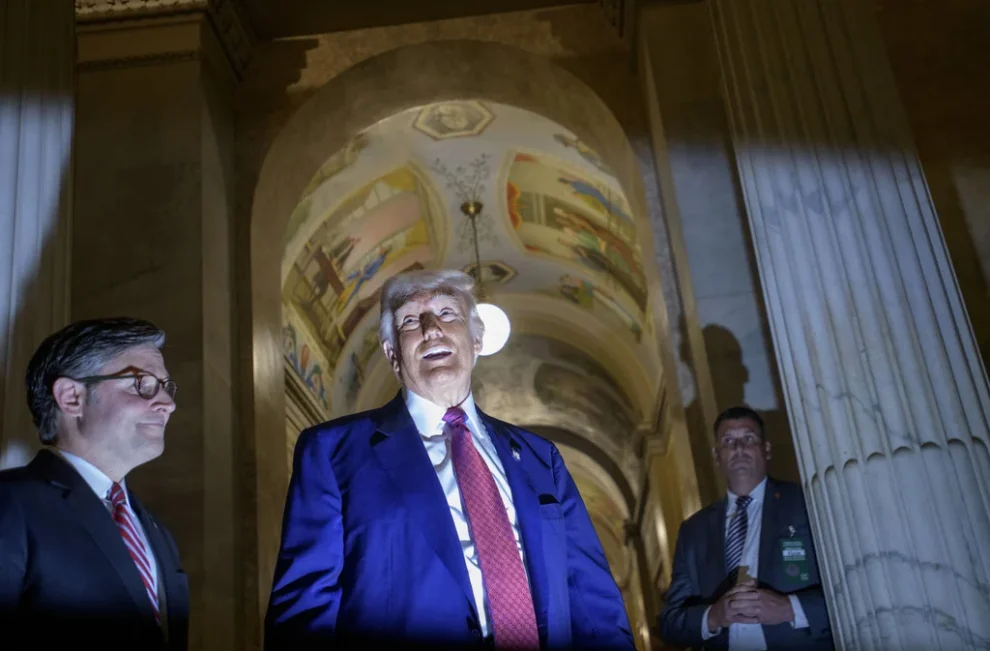House Speaker Mike Johnson (R-LA) argued that unprecedented nationwide injunctions blocking President Donald Trump’s agenda justify a controversial legislative provision now being considered by Congress that restricts such legal intervention.
The Senate is debating Trump’s “big beautiful bill” after the House passed the tax legislation last week. One of the provisions provoking outcry from Democrats is a measure that would restrict federal courts’ ability to enforce some injunctions.
Johnson said Sunday that the provision was warranted to keep a handful of “activist judges” around the country from “abusing” their power.
The House “bothered to stick it in because that’s our responsibility in Congress,” the speaker said during an interview on CBS News’s Face the Nation.
“It is about separation of powers, and right now, you have activist judges, a handful of them around the country, who are abusing that power. They’re issuing these nationwide injunctions. They’re engaging in political acts from the bench,” Johnson continued. “And that is not what our system is intended for. And people have lost their faith in our system of justice. We have to restore it, and bringing about a simple reform like that is something that I think everybody should applaud.”
In another interview Sunday morning, Johnson urged his Senate colleagues not to make too many changes to the “big beautiful bill” passed by the House, as a handful of GOP rebels threaten to derail the legislation in the upper chamber. The speaker noted that the House will have to vote again to ratify the bill after it goes through the Senate. Johnson urged Senate leaders to keep in mind the “very delicate balance here, very delicate equilibrium” he’s dealing with in pulling various factions of his conference together to back Trump’s tax bill. It’s best “not to meddle with it too much,” the speaker concluded.
“Look, I’ve been very consistent with our colleagues in the Senate,” he told CNN. “We worked hand in glove with them all through this process. … So I met with the Senate Republicans, all my colleagues over there, last week … and I encouraged them, you know, to do their work, of course, as we all anticipate, but to make as few modifications to this package as possible because remembering that we’ve got to pass it one more time to ratify their changes in the House.”
The provision in question would restrict courts from enforcing contempt citations for violations of injunctions or temporary restraining orders unless the plaintiffs pay a bond.
“No court of the United States may use appropriated funds to enforce a contempt citation for failure to comply with an injunction or temporary restraining order if no security was given when the injunction or order was issued,” the measure reads.
Erwin Chemerinsky, dean of the University of California, Berkeley School of Law, called the provision “unprecedented” in comments to USA Today.
“The greatest impact will be in preventing enforcement of all existing temporary restraining orders and preliminary injunctions if a bond has not been posted — and rarely were there bonds required,” Chemerinsky said.
A record number of nationwide injunctions have been issued against Trump during his first few months in office. That means that from the president’s attempts to ban birth citizenship to a host of other issues, a singular judge has responded to plaintiffs’ lawsuits by issuing an order that takes effect across the country, effectively blocking Trump’s agenda nationwide.
The White House believes the matter has reached “epidemic proportions,” insisting that the judges are overstepping their constitutional authority with such sweeping rulings.
After a court halted Trump from deporting a group of illegal immigrants to a third country last week, White House press secretary Karoline Leavitt pushed back at the judge.
“He is not the secretary of defense or the commander in chief. He is a district court judge in Massachusetts. He cannot control the foreign policy or the national security of the United States of America, and to suggest otherwise is being completely absurd,” she said.
Attorney General Pam Bondi has argued that the “activist” judges are trying to unlawfully undermine Trump’s ability to exercise his executive powers.
“Just since Jan. 20, we’ve had over 170 lawsuits filed against us. That should be the constitutional crisis right there, 50 injunctions,” Bondi said last month. “They’re popping up every single day, trying to control his executive power, trying to control where he believes our tax dollars should be allocated,” she said.

JUDGE ORDERS TRUMP ADMINISTRATION TO ‘FACILITATE’ RETURN OF MAN DEPORTED TO MEXICO
The Trump administration hopes the Supreme Court will restrict the power of lower courts to issue nationwide injunctions. As the country’s highest court debates the matter, conservative justices recently signaled they would be open to curtailing lower courts’ authority to issue nationwide injunctions.
“Radical left-wing judges are egregiously trying to stop President Trump from using his core constitutional powers as head of the executive branch and commander in chief,” Leavitt said last week. “We hope the Supreme Court will continue to rein this in as soon as possible, to restore proper constitutional order in our country.”
























